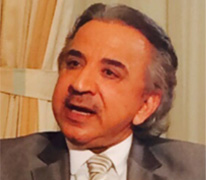The President and Vice President of the ICSFT attending the UPR13 to expose the Bahraini Regime Human Rights Violations…
Universal Periodic Review (UPR) Sessions
The Universal Periodic Review "has great potential to promote and protect human rights in the darkest corners of the world.” – Ban Ki-moon, UN Secretary-General
The Universal Periodic Review (UPR) is a unique process which involves a review of the human rights records of all 192 UN Member States once every four years. The UPR is a State-driven process, under the auspices of the Human Rights Council, which provides the opportunity for each State to declare what actions they have taken to improve the human rights situations in their countries and to fulfil their human rights obligations. As one of the main features of the Council, the UPR is designed to ensure equal treatment for every country when their human rights situations are assessed.
The UPR was created through the UN General Assembly on 15 March 2006 by resolution 60/251, which established the Human Rights Council itself. It is a cooperative process which, by 2011, will have reviewed the human rights records of every country. Currently, no other universal mechanism of this kind exists. The UPR is one of the key elements of the new Council which reminds States of their responsibility to fully respect and implement all human rights and fundamental freedoms. The ultimate aim of this new mechanism is to improve the human rights situation in all countries and address human rights violations wherever they occur.
UPR Sessions
According to the Human Rights Council’s “institution-building package”, the Universal Periodic Review Working Group will hold three two-week sessions per year. During each session 16 countries will be reviewed, therefore 48 countries per year and 192 countries by 2011, or the entire UN membership over the course of the first UPR cycle (2008-2011). On 21 September 2007, the Human Rights Council adopted a calendar detailing the order in which the 192 UN Member States will be considered during the first four-year cycle. Each review is facilitated by groups of three States, or “troikas”, who act as rapporteurs.

